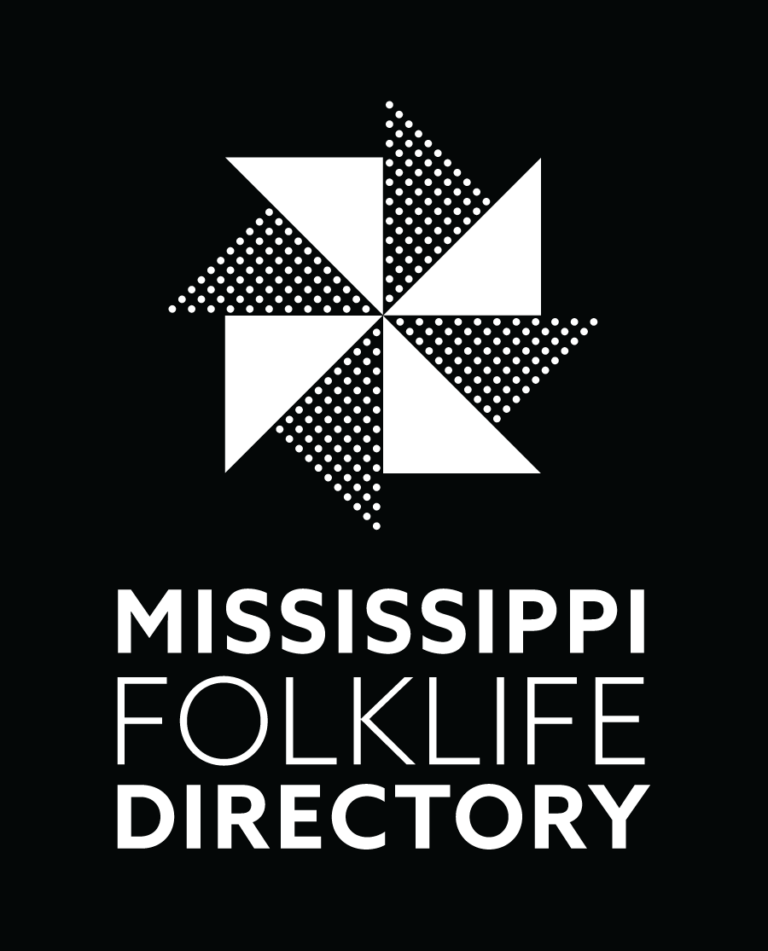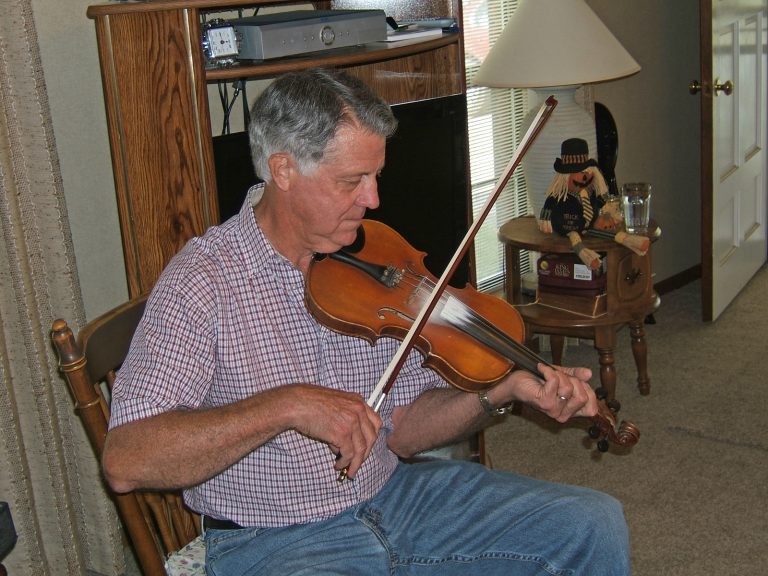Bobby Carter is carrying on a family tradition of fiddling. Carters have been making music in the same part of northeast Mississippi for several generations. Carter’s great uncle, George Carter, led Carter Brothers and Sons, a string band that recorded several 78rpm records in the late 1920s (which can be heard on Mississippi String Bands, Vol. 1 on County Records). When you drive around Carter’s hometown of Amory with him, it seems like every street inspires a tale of ancestors, farming, and music.
Bobby’s wife Gail comes from a family of musicians as well. She and her two sisters sang together, and she plays upright bass now, jamming along with Bobby frequently. He went into what became a new family profession: he was an elementary school teacher and principal (retiring in 1999) and his two daughters also teach. When he and Gail say that “we’ve done pretty much what we wanted to since,” that involves lots of music-making.
Bobby Carter was born in 1934, and lives within three miles of his birthplace. There was plenty of music around while he was growing up. His father fiddled, and his father’s four brothers and four sisters were also musicians. Bobby first played mandolin, then guitar (he accompanied his father regularly, and still plays well), but around the age of twelve became interested in fiddling. The first tune he learned on fiddle was “Black Mountain Rag,” performed in a cross-tuning used for the key of A. The most common tuning for fiddle is GDAE (like classical violin tuning), but old-time fiddlers used to retune for extra resonance in a given key and to easily hit two notes at once (since one could be an open string). That Bobby now plays “Black Mountain Rag” in regular tuning is just one illustration of how he embodies local fiddle history.
Earlier fiddling, focusing on unamplified accompaniment of dances, needed fiddlers to saw away vigorously and to seek maximum volume and “ring” through employing venerable cross-tunings (and therefore playing lots of tunes in each key in succession to avoid frequent retuning). Nowadays, in order to be able to play with anybody and at any time, fiddlers like Bobby adjust the old tunes to standard tuning . . . and widespread use of amplification allows more subtle technique and more nuanced musicality.
An even more important way Bobby’s playing illustrates the broad sweep of fiddle history is in the historic eclecticism of his repertoire. He plays 19th-century tunes like “Pop Goes the Weasel” and “Arkansas Traveler,” early 20th-century melodies including “Ragtime Annie” and “You Are My Sunshine,” and plenty of tunes made famous by Kenny Baker, his favorite bluegrass fiddler, including tunes like “Hollow Poplar” and “Methodist Preacher.”
Whenever there’s a chance to fiddle within a day’s drive of his home, you’ll find Bobby. He especially loves bluegrass, a style that wasn’t even around when he learned to fiddle. He’s in demand as a bluegrass fiddler, and he’s regularly asked to play and talk about fiddling in local elementary schools, where “She’s Coming Around the Mountain” is a perennial favorite. You can find him jamming on the festival grounds at fiddle contests ranging from the sizeable ones in Athens and Tuscaloosa, Alabama to the smaller ones like the affair for “Fiddlers and Liars” at the Mississippi State Fair. He just loves to play.
–Chris Goertzen

